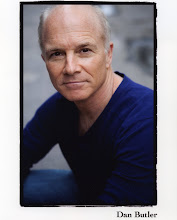A flood of lusty learning about Vermont yesterday seeing the rough cut of a friend’s documentary about Vermont – "The Vermont Story: Freedom and Unity," an epic cornucopia of topics chronicled by many filmmakers, brought together under one embrace by the editing eye of Nora Jacobson. There’s still work to be done, but this was the first grand toss up onto the canvas to see what’s there and there’s a lot. So much of what was up on the screen spoke to me in mysterious ways, inexplicable connections to what drew Richard and me here to live, but here are a few things that stuck (and know I'm a history nerd from waaaaay back):
- Vermont was not one of the original 13 colonies. It was an independent republic with a constitution that predated the United State’s.
- When Vermont was being considered for statehood the stipulations were that there couldn’t be any existing claims on the land, especially by native Americans; in Vermont, this would’ve been the Abenaki tribe. There were many Abenaki here (and still are), that would travel to several camps throughout the year so as not to overtax or deplete the natural wildlife or plant life of any particular region. Ethan Allen and his brother, major proponents for statehood, went to Washington and proclaimed that there were no Indians in Vermont, that they were just “passing through.” Statehood was immediately offered. Settlers were cautioned to honor any Indian encampments, but coming upon these seasonal camps, they thought the Indians had abandoned them, so they set up their own camp and houses and when the next season arrived and the Abenaki’s returned, they found a settlement.
- Both Bill W. and Dr. Bob, co-founders of AA, were born and raised in Vermont and it is supposed that the foundational underpinnings of AA meetings with its egalitarian flavor and concept of “no set leader” was inspired by the traditional town meetings of Vermont.
- Joseph Smith, the founder of the Mormon Church, is from Vermont.
- The Underground Railroad as well as the Abolitionist movement were quite vigorous in Vermont. Vermont judges refused to enforce the Fugitive Slave Act, a law of the land before the Civil War which ordered that escaped slaves caught in the north had to be extradited to their owners in the south. There were many free blacks working and prospering in Vermont before the war. Vermont was the first state to abolish slavery. Inter-racial marriages were common here in the early to mid- nineteenth centuries.
… and so much, much more. It will touch on eugenics, secessionist movements, the hippies, gay civil unions and marriages (Richard and I will be included in portions of that section), farming, and on and on and on. Such rich soil, the indefatigable spirit of the place. I am so proud to live in this place, so grateful to whatever mysterious, synchronistic pull that brought us here. And yesterday we traveled an hour and a half to the screening through some of the most gorgeous countryside you can imagine – hills and valleys with that last burst of green before the colors turn, all basking beneath a clear, blue sky yesterday.
And hearkening back to synchronicity, we get to the gathering, eat with our fellow filmmakers and historians and contributors of many stripes and fashion, and we meet a gentlemen, a political scientist/farmer who is interviewed through one particular section of the movie, and we tell him that we live near Newbury, Vermont, to which he replied that he grew up in Newbury. He asked what road we were on and when we tell him the name of the road, he said, “I know it well. I used to walk 7 miles to see a girl who lived on a chicken farm out that way.” Our reply? ‘That’s our house. That’s where we live.’ “No shit.” Not only that, but his “girlfriend” Susan, we had seen just that morning when Richard borrowed her kayak to go out with me on the Connecticutt River for an early morning row.
It’s a small state.
A small WONDERFUL or WONDER FILLED state.
Sunday, August 29, 2010
Subscribe to:
Post Comments (Atom)

No comments:
Post a Comment